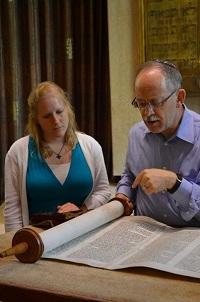Beyond Suffering: Lenten Meditation, 2/28/2013
Luke 4:14-21
By: Patrick Christopher Kangrga

Lent is a perplexing liturgical season. We do the complete opposite of what we think we normally should do. For the most part, we are taught that we should lift our pains and our sorrows up to God, and that Christ will help us bear these burdens. But during Lent, we are asked instead to give up on giving away our suffering. In fact, we are asked to empathize with Christ and to take on the trials of his Passion in some experiential manner, such as fasting.
However, for some this time of penitence may seem like nothing new. What does Lent preach to the mother who lost her son in the Newtown shootings? What does Lent preach to the young woman who just attempted suicide? Does Lent simply preach suffering to those who have little pain and little guilt, and more suffering to those who have pain and guilt in abundance?
The issue may be that Lent is only a part of the story, just as today’s scripture is only part of the story. We lose something when it is not put into the proper context. So, let us find the context that will enlighten the purpose of this season and the meaning of this scripture.
Jesus comes to the Temple in Nazareth, obtains the scroll of Isaiah, and then presents the reading. And what does Jesus preach after reading, “The Spirit of the Lord is on me, because he has anointed me…”? Jesus opens with, “Today the scripture is fulfilled in your hearing.” It could have been, and most likely was, interpreted as, “I am Jesus. I am the fulfillment of this scripture. I am the Messiah.”
But Jesus is not preaching out of a place of arrogance as much as a place of righteous confidence. Just prior to the event in our reading, Jesus had spent forty days in the wilderness being tempted by the Devil. Jesus did not eat during his time in the wilderness. We can imagine the stomachaches, the headaches, and all the body aches he must have felt. Those committing to the spiritual practice of fasting will know something of these pains of Jesus at some point during this season.
But to a demand of the Devil Jesus responds, “Man shall not live on bread alone,” a quotation from Deuteronomy 8:3 that finishes, “but on every word that comes from the mouth of the Lord.” Jesus spent forty days feeding on the Word of the Lord, on faith in that Word. And ultimately, Jesus’ faith was fulfilled, his suffering redeemed as he truly recognized himself as the son of God, the Messiah, and the Word incarnate, while preaching in the temple.
Context shows us the fulfillment of faith. Just as Jesus had a confident faith in being the Messiah, we can have a confident faith that our story is not just in the moment, and it does not end in the suffering of Lent. Our story continues into the resurrection, into new life and eternal life. First comes death to self, and only then are we able to be reborn. So as we roll up the scroll of today’s scripture, we can take the words of Jesus to heart and keep the faith that, “Today this scripture is fulfilled…”
Father of mercy, You know our trials and tribulations as they are tied into the trials and tribulations of Christ, who is the Lord of our pains and the redeemer of our suffering. As we ever attempt to know and be united in Christ, help us to always remember that, though there are pains of the body and wounds of the soul, we may always have a confident faith that life does not end in sorrow and in sickness, but that there is a time of healing and resurrection. And so now and forever, we look toward the fulfillment of our faith in the coming of Jesus Christ. Amen.
